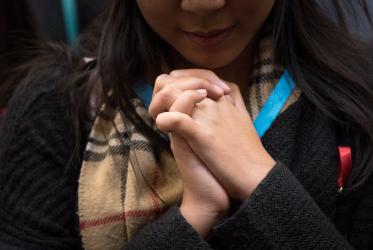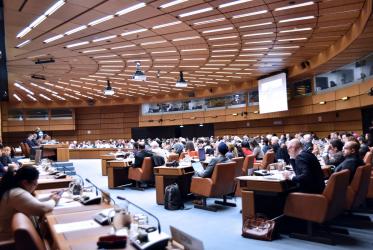Displaying 1 - 11 of 11
03 November 2020
Turning plans into action to prevent incitement to violence
14 February 2018
WCC/UN conference calls for coordinated action on refugee crisis
20 January 2016
WCC urges responsibility for and support to the refugees in Europe
04 September 2015
WCC Executive Committee speaks out on migrant crises
12 June 2015
Momentum builds for ban on nuclear weapons
16 December 2014






